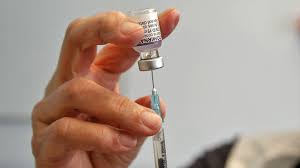World War II suspended the Tour de France and most other cycling and athletic-related events. For one thing, many riders were called to fight for their countries.For another, had the events been held, riders' safety could not be ensured.
So I was surprised to learn that a race transversing one of the world's most war-torn countries last week. One thing that makes the race all the more interesting is that it is being promoted as a counterpart to the Tour de France. Burkina Faso was a colony of that country, called Upper Volta, until 1984.
Eighty cyclists are riding the race, some of them Europeans. (They say they're not worried about safety because "the military are everywhere.") Perhaps most prominent among them is Paul Daumont, who also competed in this year's Olympics in Tokyo. The good news is that, at 22, he still has a lot of riding ahead of him.
But he admits that it hasn't been easy for him, or other cyclists from his country. The country's cycling federation gave him a bike when he showed potential but, he says, you need a really good bike which few of his compatriots can afford. Also, I imagine that his team and others in Africa simply don't have the budgets or facilities of their European counterparts.
Daumont has already raced, not only in Japan, but in other countries like Switzerland. It's fair to wonder whether he and other talented cyclists will follow their counterparts in football (soccer) to careers in Europe, where teams from the English Premier League to Serie A feature star players from Africa and other parts of the world. The French national team won the World Cup in 1998 and 2018 largely thanks to the efforts of their African and Middle Eastern players.
Two things Daumont and other African cyclists share with their football-playing counterparts are ambition and a willingness to work very, very hard. So, perhaps, we might see Africans win the Tour, Giro and Vuelta sooner rather than later.

